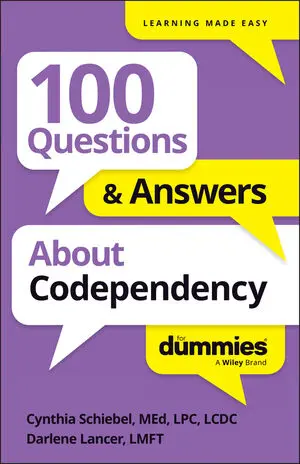Unresolved or escalating conflicts are the norm among codependent couples, who probably didn’t have good role models for expressing anger and handling conflict. Often in codependent relationships, one or both partners are usually passive or aggressive, rather than assertive. When it comes to disagreements, low self-esteem leads to
-
Inability to express your needs and wants
-
Being very reactive
-
People-pleasing
-
Not taking responsibility for your behavior, feelings, and needs
-
Inability to be honest
-
Taking things personally
-
Defensiveness
-
Hidden expectations of others
-
Blaming
-
Attacking or withdrawing
Arguments in themselves aren’t necessarily a bad sign. Having different needs and opinions is inevitable. Conflict means differences are surfacing, and this allows for negotiation and respect for one another’s needs.
But in some relationships, differences aren’t acknowledged, either because one partner dominates a subservient one or because boundaries are enmeshed and both individuals are merged. They don’t really know themselves, or one or both are sacrificing who they are to please the other.
The solutions to differences usually backfire, because they build resentment and passive-aggressive behavior. As a result, intimacy suffers. For such couples who don’t usually argue, conflict is a sign of growth and maturity.In healthy conflict, you’re able to express your needs and wants and mutually work out compromises. You’re able to problem-solve together. Your intentions and how you approach differences are critical. The objective should be to resolve a disagreement to the satisfaction of both of you.
It’s not about winning and losing. You can “win” an argument, but the relationship may suffer if your partner feels discounted, deflated, or resentful. Planning when, where, and how you approach a disagreement is important for achieving satisfactory results. Draw up rules of engagement in advance. Here are eight suggestions for handling conflict:
-
Make it okay to “agree to disagree.” You don’t have to agree on everything. Try to accept irresolvable differences that don’t violate your values.
-
Have time-limited discussions and stick to the pre-set time. A half-hour is plenty. You can always reconvene.
-
Work through things as they come up. Don’t stockpile resentments; otherwise, each postponement becomes a block to the next communication.
-
Remember to maintain goodwill by separating the person you care about from the behavior. Assume that your partner is doing his or her best and isn’t hurting you intentionally.
-
Take responsibility for your behavior, needs, and feelings. Use “I” statements to share your feelings and thoughts about yourself.
-
Listen with curiosity and a desire to understand your partner and to see the world through his or her eyes. When you don’t understand, ask for clarification.
-
Use a “we” approach. “We have a problem,” not “My problem with you is . . .”






